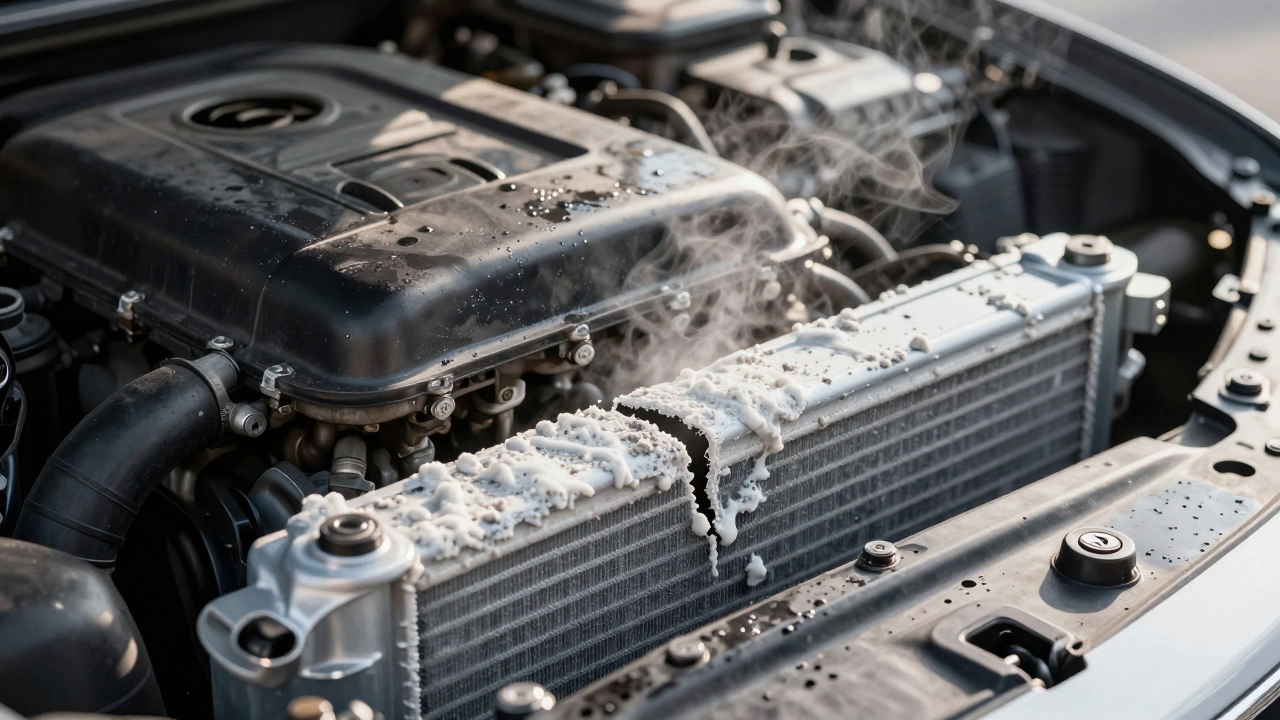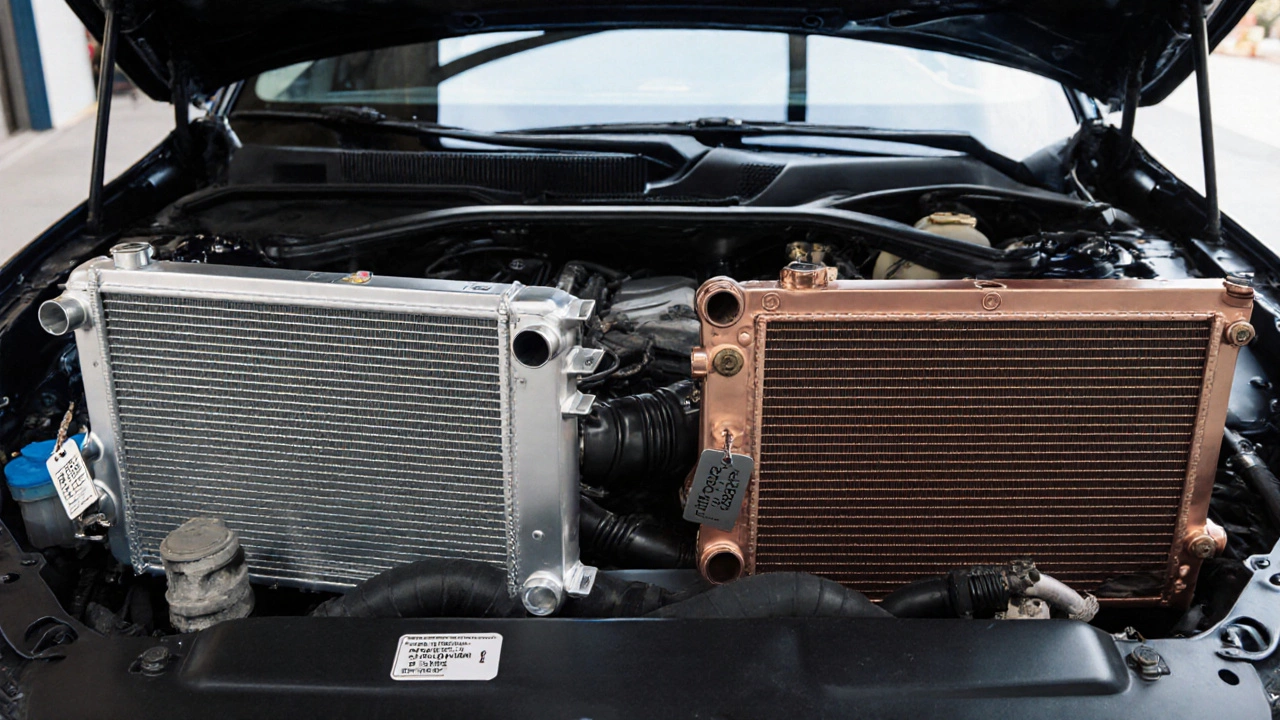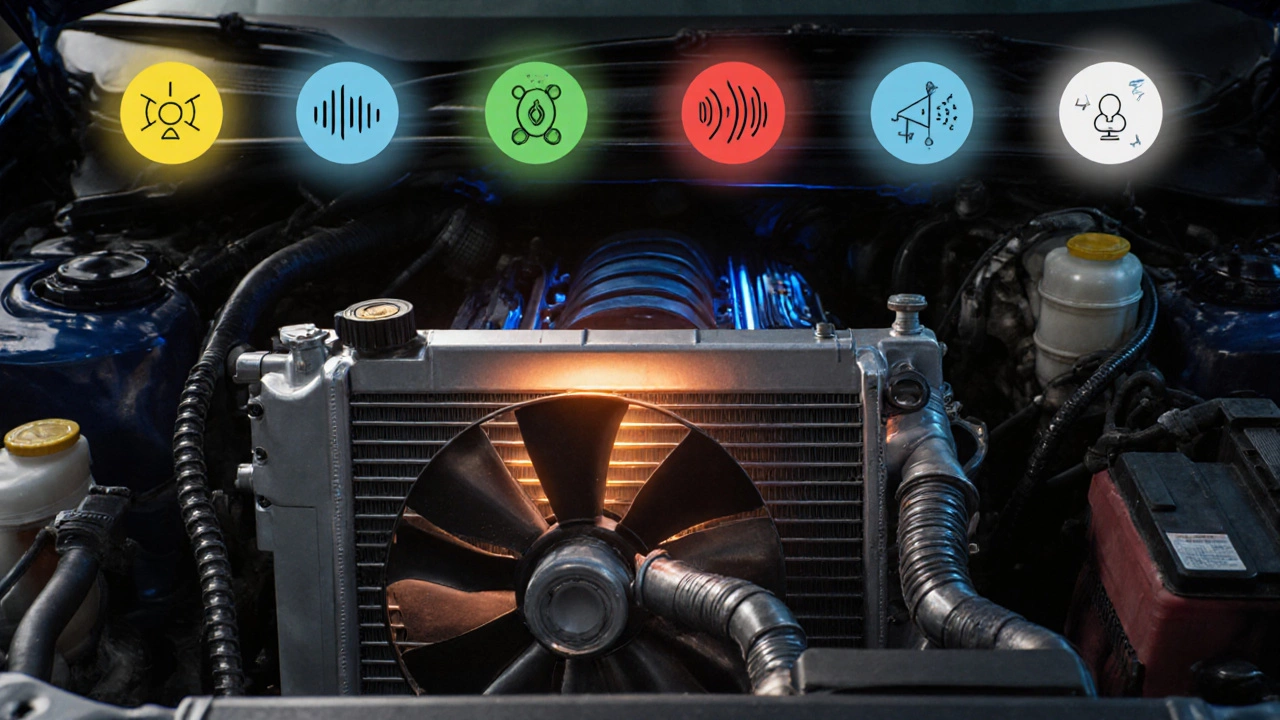Radiators – Keeping Your Engine Cool and Running Smoothly
When working with Radiator, the heat‑exchanging component that keeps an engine at safe temperatures. Also known as car radiator, it plays a central role in the vehicle's cooling system.
The coolant system, a network of hoses, reservoir, and fluid that transports heat away from the engine depends on a healthy radiator to release that heat. If the radiator fails, engine overheating, a condition where engine temperature exceeds safe limits can happen quickly, leading to costly damage. That's why understanding the link between radiator condition and overheating risk is key for any driver.
When to Repair, When to Replace, and When to Upgrade
Most owners wonder: is Radiator repair cheaper than swapping the whole unit? The answer hinges on the type of failure. A small leak that you can seal with epoxy or a cracked hose may be fixed in a couple of hours for a modest price. However, a warped core or corroded fins often mean replacement is the smarter move because a repaired unit might not cool efficiently, inviting overheating again.Choosing a replacement also opens the door to a radiator upgrade, a higher‑performance unit designed for better heat dissipation and sometimes increased flow. Upgraded radiators can improve fuel economy, boost engine power, and keep temperature steady under heavy loads—perfect for towing, performance driving, or hot‑climate regions. The trade‑off is a higher upfront cost, but many drivers find the long‑term benefits outweigh the price.
DIY enthusiasts often ask if swapping a radiator is a doable weekend project. The core steps involve draining the coolant, disconnecting hoses, removing the old unit, and installing the new one with fresh coolant and proper bleed. If you’re comfortable with basic hand tools and can follow a service manual, you’ll save labor fees. Still, keep an eye on common pitfalls: tightening hose clamps too much, overlooking the thermostat housing, or forgetting to purge air bubbles—any of these can reignite overheating problems.
Even after a repair or upgrade, regular maintenance makes a big difference. Checking coolant level every month, inspecting hoses for cracks, and flushing the system every two years keep the radiator and the entire cooling network in top shape. A quick visual check for rust or deposits on the radiator fins can alert you to corrosion before it turns into a leak.
Across our collection you’ll find practical advice on spotting early warning signs, budgeting for repairs versus replacements, and deciding if an upgrade matches your driving style. Whether you’re dealing with a noisy heater, a puddle of coolant under the car, or just want to squeeze extra performance out of your engine, the articles below cover the full spectrum of radiator care.
Ready to dive deeper? Below you’ll discover how to diagnose a bad radiator, compare repair and replacement costs, weigh the benefits of an upgrade, and learn step‑by‑step DIY tips. Each guide is packed with real‑world examples and clear actions you can take today to keep your engine cool and your rides reliable.

How to Tell if It's a Radiator or Head Gasket Problem in Your Car
Jan 12 2026 / RadiatorsLearn how to tell if your car's overheating is caused by a radiator leak or a blown head gasket using simple checks like oil color, exhaust smell, and coolant loss patterns. Avoid costly mistakes with this clear guide.
VIEW MORE
How to Tell If You Need a New Radiator
Dec 11 2025 / RadiatorsLearn the key signs your radiator is failing-overheating, coolant leaks, strange smells, and discolored fluid-and how to avoid costly engine damage by replacing it before it's too late.
VIEW MORE
How Much Does a Car Radiator Cost? 2025 Guide
Oct 25 2025 / RadiatorsDiscover how much a car radiator costs in 2025, the factors that affect price, DIY vs professional options, and tips for choosing the right part.
VIEW MORE
Common Bad Radiator Sounds & How to Identify Them
Oct 22 2025 / RadiatorsLearn the typical sounds of a failing car radiator, what each noise means, how to diagnose the problem, and when to call a mechanic.
VIEW MORE
Can a Car Run on a Bad Radiator? Risks, Signs & What to Do
Oct 8 2025 / RadiatorsLearn if a car can run with a bad radiator, recognize overheating signs, understand risks, and discover temporary fixes and repair tips.
VIEW MORE
Is It Cheaper to Replace or Repair a Radiator?
Apr 15 2025 / RadiatorsFiguring out whether to replace or repair a car radiator isn't as easy as it seems. This decision balances cost, time, and impacts on your car’s performance. Understand common signs of a failing radiator, considerations for repair versus replacement, and how to choose the best option based on budget and vehicle condition.
VIEW MORE
Why Upgrade Your Car's Radiator: Is It Worth It?
Mar 23 2025 / RadiatorsThinking about upgrading your car's radiator but unsure if it's worth the investment? Upgrading can offer benefits like improved engine performance and fuel efficiency. Learn why you might consider a new radiator, how it impacts your vehicle's health, and whether it’s the right move for you. Discover crucial factors to weigh up when making your decision, along with practical tips for maintaining a healthily cooled engine.
VIEW MORE
Is Replacing a Car Radiator Hard?
Feb 10 2025 / RadiatorsReplacing a car radiator isn't as daunting as it seems, especially if you're handy with basic car repairs. By understanding the radiator's role and recognizing the signs of failure, you can troubleshoot issues early. This helps in deciding whether a DIY replacement is feasible or if professional help is needed. Learn essential tips to make the process smoother and how regular radiator maintenance can extend a car's life.
VIEW MORE